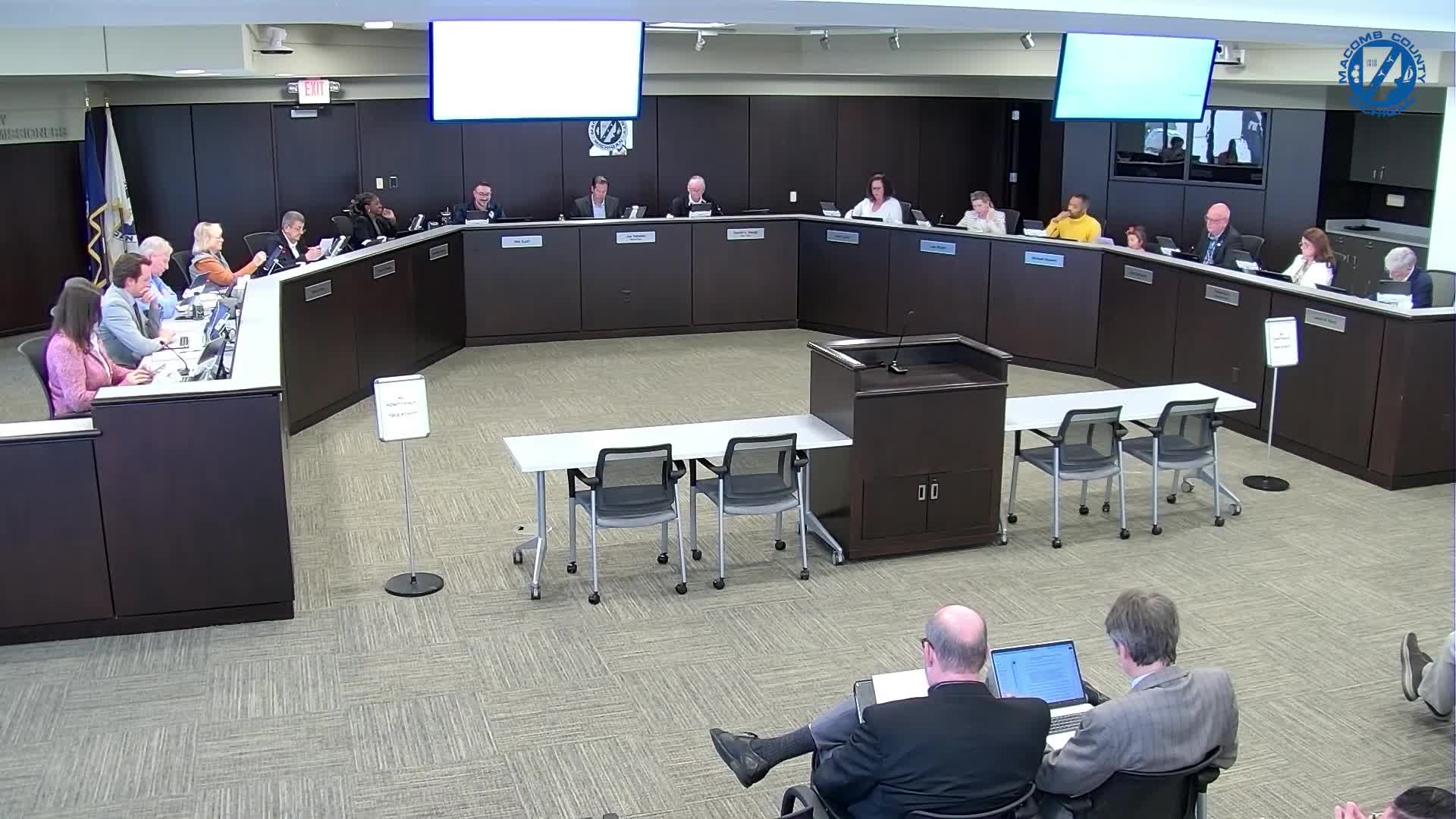Macomb commissioners send 0.1‑mill proposal for Martha T. Berry facility upgrades to full board after heated debate
Get AI-powered insights, summaries, and transcripts
Subscribe
Summary
The joint Internal Services and Health & Human Services committees voted to send a proposed 0.1‑mill levy for Martha T. Berry Medical Care Facility to the full Macomb County Board, after commissioners debated using a millage versus reallocating capital funds or reserves to pay for urgent elevator and HVAC work.
Commissioners on the Macomb County Joint Internal Services and Health and Human Services committees voted to advance a proposed 0.1‑mill levy for Martha T. Berry Medical Care Facility to the full board, following an extended debate about how to pay for urgent building repairs including elevators and HVAC work.
The committees voted to move the resolution to the full board; the final recorded committee tally after a motion to reconsider was 7–6 in favor of sending the measure forward.
The levy language would authorize a county millage specifically to “support capital improvements at Martha T. Berry,” commissioners said during discussion. Commissioner Lucido, chairing the Health and Human Services committee, described the cost per household as small: “The cost is very minimal per household. We’re looking at approximately about 83¢ per household.”
Director Kevin Evans told commissioners the facility faces state‑mandated equipment replacement and other deferred maintenance. “Decades ago, the authors of the state constitution ... give the county commissioners the option when there is a need for expansion of services or when there is a regulatory requirement, to go ahead with a voice vote, put a 0.1 mill millage in for those such services,” Evans said, explaining the legal basis for a county millage for medical care facilities. He and other speakers estimated the combined need for elevators and HVAC at roughly $5 million.
Commissioners split on how to proceed. Some favored using existing capital funds or the county’s reserves so taxpayers would not face another levy. Commissioner Van Sickle said he preferred “to fund them out of our reserve funds instead of putting a new tax levy on our citizens.” Others argued the work is urgent and partly state‑mandated, and that millage revenue could be available earlier in the county budgeting process for planning and contracting. Facilities staff and county capital managers warned some major components — notably elevator and certain HVAC parts — have long lead times that could stretch into 12–18 months, so early contracting and design work would be needed regardless of the funding source.
Commissioners also discussed partial options: $2 million already is included in the county capital improvement plan for elevator work and related items, and commissioners asked whether that money could be advanced while the larger funding plan is finalized. Facilities and procurement staff said the $2 million could be used to begin work or design, but that the full scope of the HVAC and elevator needs likely exceeds that amount.
No final construction contracting decisions were made at the committee. The committee’s vote advances the millage resolution to the full Macomb County Board of Commissioners, where the measure will appear for final consideration.
The millage debate included sustained back‑and‑forth among commissioners about timing, the county’s budgeting alternatives and the practicalities of meeting state compliance deadlines. Commissioners who opposed the action on the committee floor said they supported the facility’s needs but preferred that the board reallocate existing capital funds or use fund balance in the 2026 budget cycle instead of adding a new levy.
